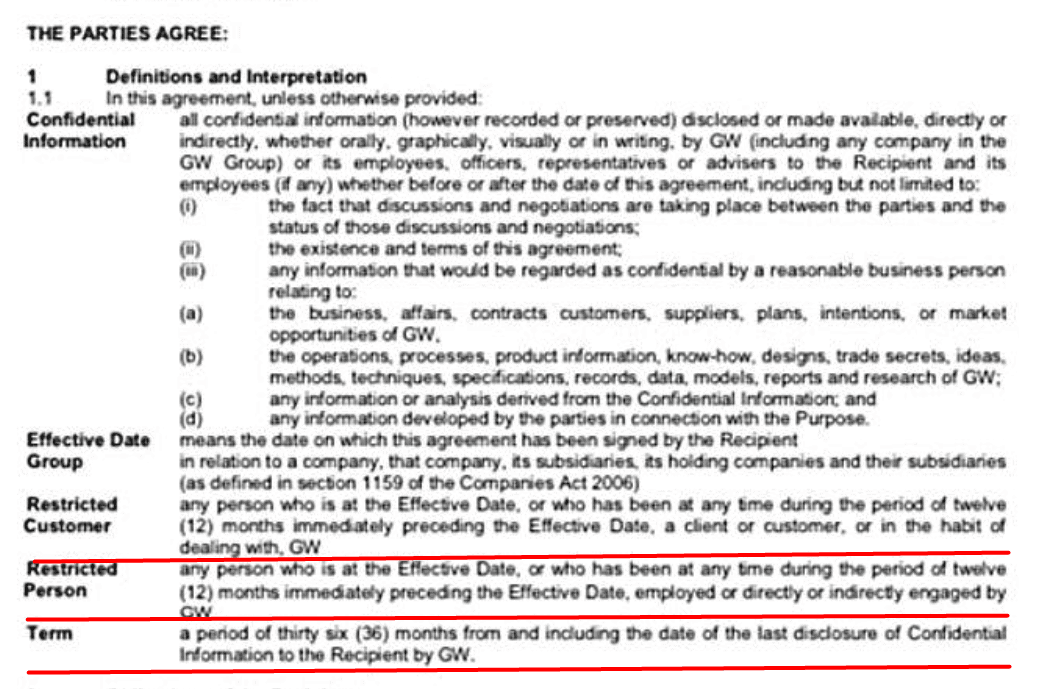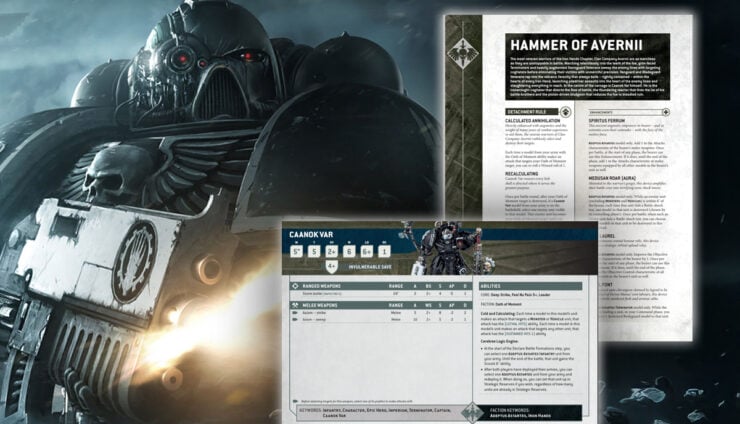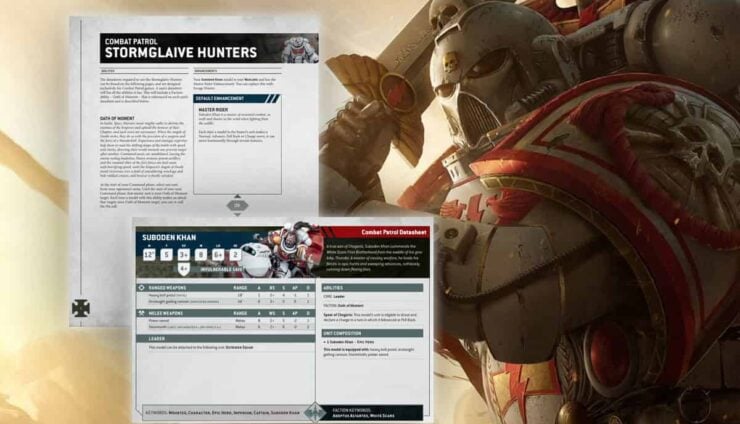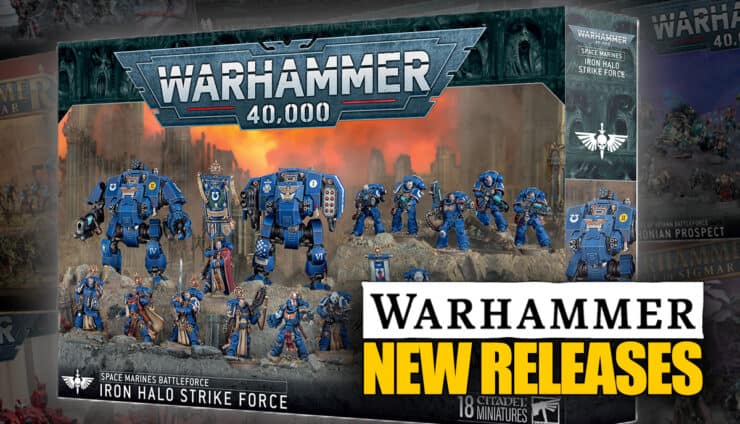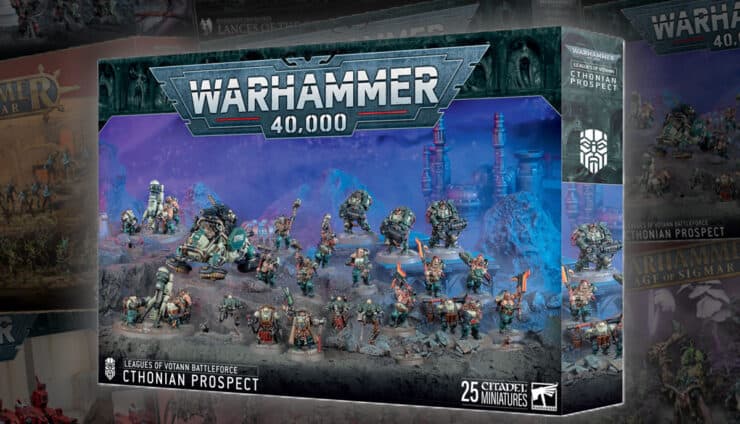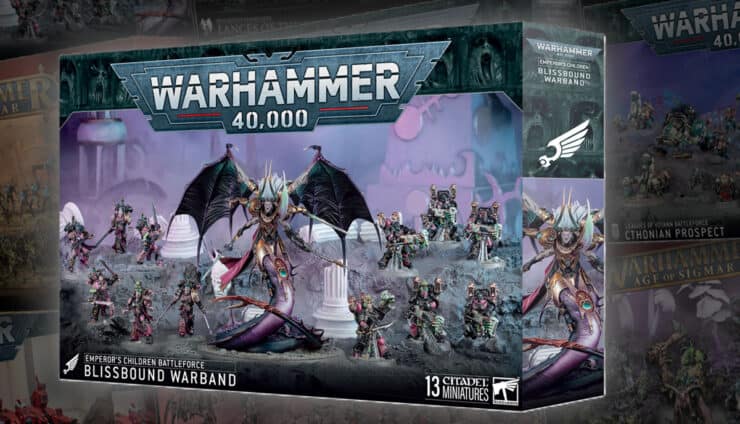Magic: The Gathering asked players to help them create a “hit list” of creators giving negative reviews; what if Games Workshop pulled the same move for Warhammer?
Magic: The Gathering’s recent Spider-Man set didn’t just flop; it sent Wizards of the Coast into full-blown panic mode. On September 25th, Wizards rolled out a “player feedback” survey to figure out what went wrong, but the questions raised more eyebrows than answers.
The kicker? It wasn’t just about cards. It asked players to name content creators who influenced their opinions, especially if they had something negative to say. Yeah, that’s the part that got the community talking.
So now, we’re wondering, what if Games Workshop pulled the same stunt? Because let’s face it, Warhammer is all about the money now.
Magic: The Gathering’s “Blame the Creators” Strategy
Updated on October 30th, 2025, by Rob Baer with the latest.
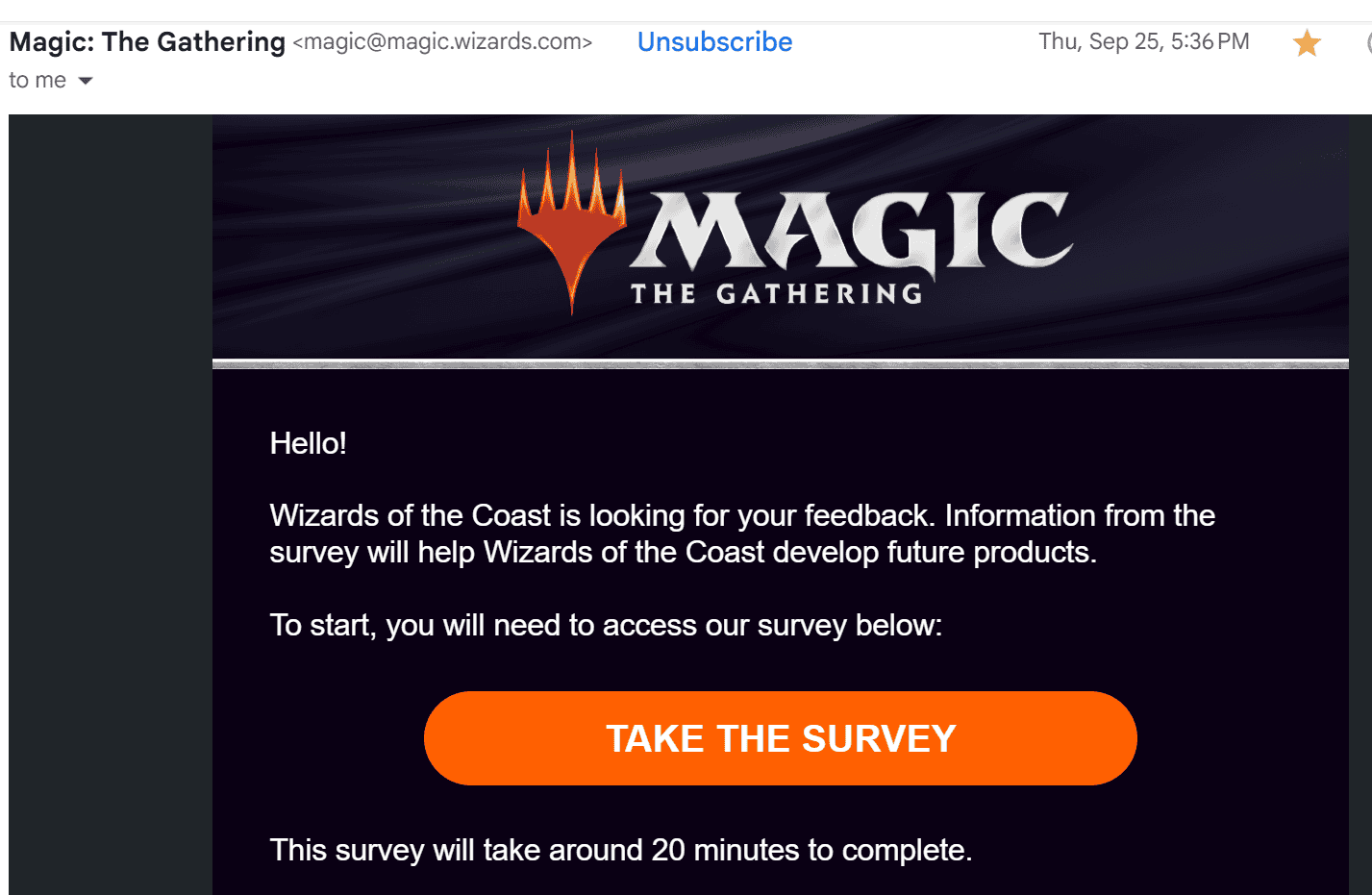
They got hit with a question asking which creators made them feel that way.
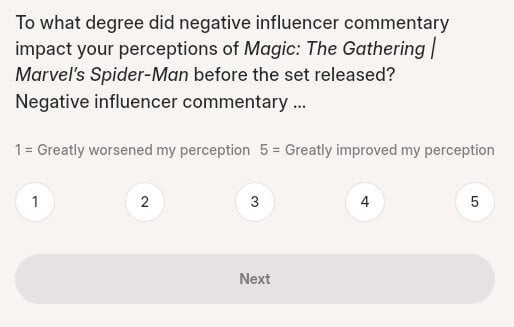
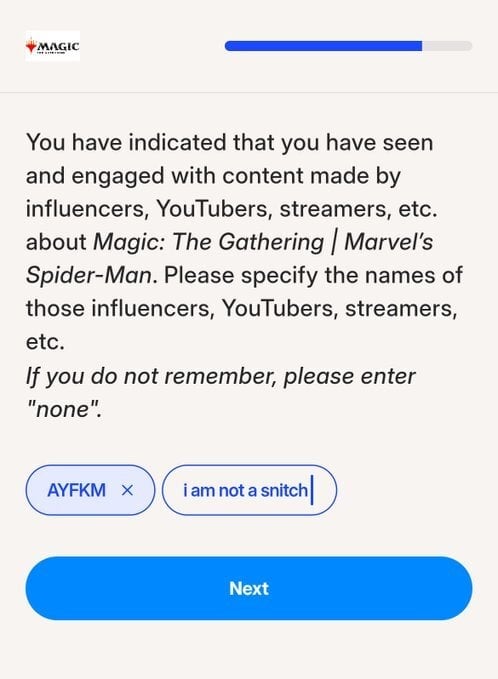
Either way, they don’t seem to be blaming themselves for the one thing all creators stated about the Spider-Man set: it was just bad set design in general.
Regardless, if this whole thing sounds shady, we agree. It blurs the line between community engagement and corporate control, turning honest feedback into a potential blacklist.
Games Workshop’s Infulencer Ecosystem: Controlled Chaos
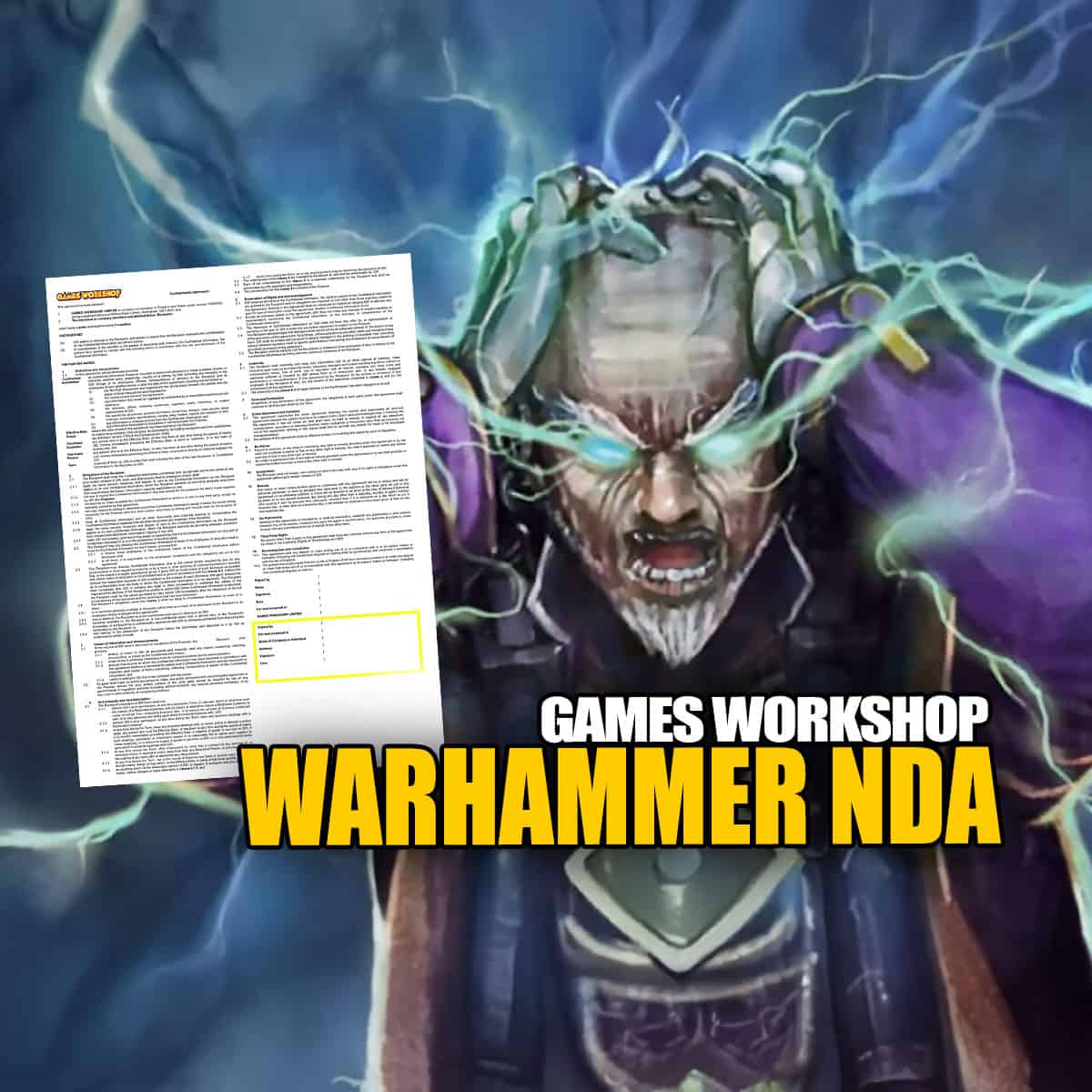
These are the people who drop perfectly timed “leaks” that just happen to build hype for preorders. Coincidence? Maybe.
And they usually keep their opinions tame unless the community already smells blood in the water. Take the Legends fiasco before Skaventide, where GW quietly killed off a batch of older Sigmar models, right before a new wave of replacements went up for preorder. The timing wasn’t subtle, and players called it out.
Only then did some creators dare to echo the outrage. It seems to all be part of the GW ecosystem: don’t bite the hand that sends you free plastic.
When “Partnership” Feels Like a Leash
We’ve seen Games Workshop flex before. Remember the Horus Heresy launch in 2022? At least one creator lost their spot in the program after crossing a line. The company tightened NDAs to the point that even whispering the wrong date could get someone dropped.
They’ve got leverage because they control the flow of product and information. Want early access? Play nice. Want that sweet preview content for your channel? Don’t rock the boat. It’s the classic carrot-and-stick setup, except the carrot’s made of plastic and costs $100 a sprue.
The Creator “Hit List” Hypothetical

But let’s be honest, this kind of system wouldn’t work for GW. The Warhammer fanbase is too jaded, too vocal, and too good at spotting corporate nonsense. GW’s track record speaks for itself, from high-pressure retail tactics to quietly pulling stock from the shelves of struggling games. Players don’t forget that stuff, and creators who call it out often earn more credibility, not less.
The community thrives on leaks, rumors, and honest rants. That’s the lifeblood of Warhammer content.
The Real Problem: Corporate Echo Chambers

Instead of learning from failure, they blame the messenger. Instead of rewarding transparency, they double down on control. The irony? Both companies need their critics. They’re the reason conversations keep happening long after the product drops.
When the audience loses trust, hype dies fast.
GW’s Achilles Heel
If there’s one thing GW’s proven, it’s that it doesn’t need outside enemies; it’s perfectly capable of shooting itself in the foot. Pick any issue: the pricing creep, the legends shuffle, the made-in-China rumors, or the “we’re not scalping, just allocating” supply drama. The company’s pattern of half-steps and bad PR already gives creators enough fuel for months.
And that’s the difference between Wizards and GW. Wizards might make a “hit list.” GW doesn’t need to. Their worst enemy is their own marketing department.
Final Thoughts on Games Workshop & Content Creators
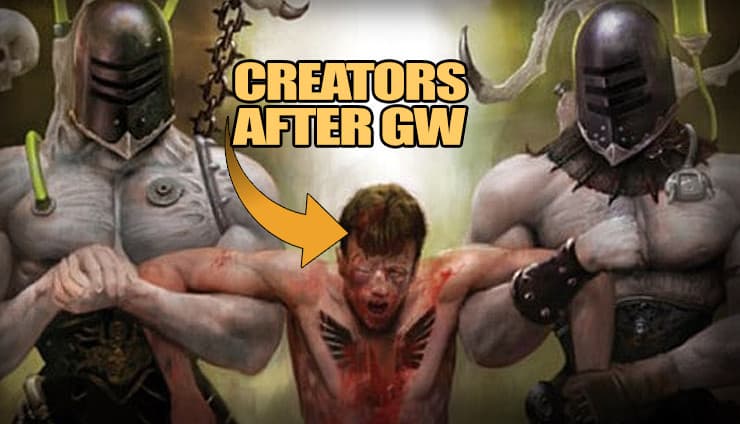
The truth is, the hobby thrives on diversity, of opinion, of approach, of tone. The community doesn’t want corporate-scripted positivity; it wants honesty, humor, and a bit of edge. That’s what keeps it real.
If Wizards wants to blame creators for their failures, let them. Games Workshop doesn’t need to copy that move. They’ve already got their own chaos gods to answer to.
See the Latest GW Lawsuit Crackdown

